News
Published 26 June 2025Council and Academy Executive Committee election results
The following people have been elected onto the Royal Society Te Apārangi Council and the Academy Executive Committee.
Dr William Rolleston CNZM CRSNZ has been elected to the Society’s Council by the general membership.
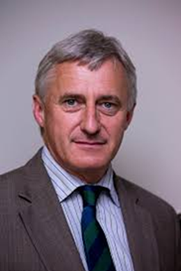 Dr William Rolleston CNZM CRSNZ has extensive governance experience, as Member, President, or Chair of Boards including Genomics Aotearoa, MOTU Economic and Public Policy Research, Federated Farmers, the World Farming Organisation, Craighead Diocesan School, Aoraki Development Trust, and BIOTENZ. Dr Rolleston co-founded South Pacific Sera Ltd, a biotechnology business which was a diversification of his family’s farm.
Dr William Rolleston CNZM CRSNZ has extensive governance experience, as Member, President, or Chair of Boards including Genomics Aotearoa, MOTU Economic and Public Policy Research, Federated Farmers, the World Farming Organisation, Craighead Diocesan School, Aoraki Development Trust, and BIOTENZ. Dr Rolleston co-founded South Pacific Sera Ltd, a biotechnology business which was a diversification of his family’s farm.
He was the founding chair of the Life Sciences Network – an advocacy organisation for national science and industry organisations. He owns Blue Cliffs Station, a sheep and beef farm in South Canterbury, which incorporates forestry. Dr Rolleston has been a member of the government’s Science Strategy Advisory Group and of the Genetic Modification Technical Advisory Group.
Professor Stephen May FRSNZ has been elected to Deputy Chair of the Academy Executive Committee and will also serve on Council.
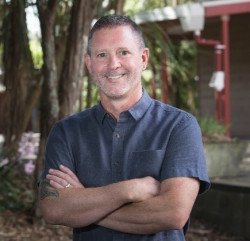 Professor Stephen May FRSNZ is a social scientist whose interdisciplinary research traverses applied linguistics, socio-linguistics, sociology, political theory, education, and law. He has published on language rights, revitalisation of Indigenous languages, bilingual education, critical multiculturalism, and the multilingual turn in language learning. His work has focused on te reo Māori, but has included many languages in the Americas, Europe, and the Asia Pacific region. Professor May has been founding Co-Editor of the interdisciplinary journal Ethnicities since 2001, and Editor in Chief of the 10-volume Encyclopedia of Language Education.
Professor Stephen May FRSNZ is a social scientist whose interdisciplinary research traverses applied linguistics, socio-linguistics, sociology, political theory, education, and law. He has published on language rights, revitalisation of Indigenous languages, bilingual education, critical multiculturalism, and the multilingual turn in language learning. His work has focused on te reo Māori, but has included many languages in the Americas, Europe, and the Asia Pacific region. Professor May has been founding Co-Editor of the interdisciplinary journal Ethnicities since 2001, and Editor in Chief of the 10-volume Encyclopedia of Language Education.
He has been awarded a Fulbright Senior Scholarship, a Fellowship with the American Association of Research in Education, and the New Zealand Association of Research in Education’s McKenzie Award for lifetime academic achievement. He was made a Fellow of the Royal Society Te Apārangi in 2016, and in 2023, was honoured with the Society’s Mason Durie Medal for the nation’s pre-eminent social scientist.
Professor May has been Co-Chair of the Education Panel for New Zealand’s Performance-Based Research Fund, and a member of the Humanities and Social Sciences panel for the Marsden Fund. He was the Convenor of Social and Behavioural Sciences for the Society’s Academic Executive Committee (2019–21). Internationally, he is on the Board of the Linguistic Justice Foundation. His current role is with Te Puna Wānanga in the Faculty of Education and Social Work at the University of Auckland Waipapa Taumata Rau, where he has been Deputy Dean of the Faculty of Education and Director of the Tai Tokerau campus.
Professor Cather Simpson FRSNZ has been elected as Convenor for Technology, Applied Sciences and Engineering for the Academy Executive Committee.
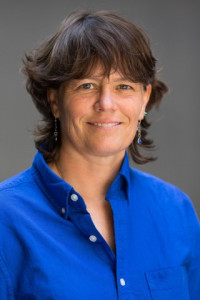 Professor Cather Simpson FRSNZ is a physicist and chemist at The University of Auckland Waipapa Taumata Rau. She is a Fellow of the Society, and has served as Convenor for Technology, Applied Sciences and Engineering for the Academy Executive Committee for the past 3 years, She also serves on a range of panels for the Society’s Awards, Medals, and Fellowships, and for the Marsden Fund. She has had significant leadership and governance experience, as Non-Executive Director at Fisher & Paykel Healthcare, as Vice President of the International Society for Optics & Photonics, as Chair of Commission 17 for the International Union of Pure and Applied Physics, and as a Board Member for the Dodd Walls Centre for Photonic and Quantum Technologies and several deep-tech startups, including Advemto (Chair), Dewpoint (Chair), Luminoma and Orbis Diagnostics (where she is also CEO). Her career has included entrepreneurial roles as Chief Science Officer at Engender and Partner at Pacific Channel. She was Director of the Photon Factory at the University of Auckland until 2018, during which time this research facility generated significant impact in collaboration with industry and government, and spun out three successful companies.
Professor Cather Simpson FRSNZ is a physicist and chemist at The University of Auckland Waipapa Taumata Rau. She is a Fellow of the Society, and has served as Convenor for Technology, Applied Sciences and Engineering for the Academy Executive Committee for the past 3 years, She also serves on a range of panels for the Society’s Awards, Medals, and Fellowships, and for the Marsden Fund. She has had significant leadership and governance experience, as Non-Executive Director at Fisher & Paykel Healthcare, as Vice President of the International Society for Optics & Photonics, as Chair of Commission 17 for the International Union of Pure and Applied Physics, and as a Board Member for the Dodd Walls Centre for Photonic and Quantum Technologies and several deep-tech startups, including Advemto (Chair), Dewpoint (Chair), Luminoma and Orbis Diagnostics (where she is also CEO). Her career has included entrepreneurial roles as Chief Science Officer at Engender and Partner at Pacific Channel. She was Director of the Photon Factory at the University of Auckland until 2018, during which time this research facility generated significant impact in collaboration with industry and government, and spun out three successful companies.
Distinguished Professor Neil Gemmell FRSNZ has been elected as Convenor for the Biological and Environmental Sciences for the Academy Executive Committee.
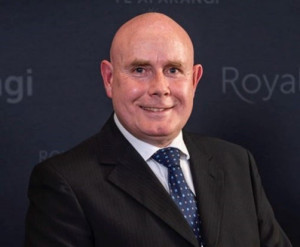
Distinguished Professor Neil Gemmell FRSNZ FLS is a geneticist at the University of Otago and Chair of the Centre for Reproduction and Genomics. Professor Gemmell has published in genomics, biodiversity conservation, evolutionary processes, and environmental impacts. He has led large, collaborative research projects spanning molecular, cellular, whole organism biology, genetics, genomics, ecology, and evolutionary biology, across terrestrial, freshwater, and marine environments.
He was made a Fellow of the Royal Society Te Apārangi in 2021, and in 2020, he was honoured with the Society’s Hutton Medal for outstanding work on animal, earth, or plant sciences. His leadership roles at the University of Otago have included acting Pro Vice Chancellor for Health Sciences, Dean of Biomedical Sciences, and Head of the Department of Anatomy. He has also held significant roles in learned societies, such as the Genetic Society of Australasia, Society for the Study of Evolution, and the Society for Reproductive Biology. He has served on a range of assessment panels, including for the Marsden Fund and the Society, and for the government, international agencies, and the university.
Professor Lynda Johnston FRSNZ has been elected as Convenor for the Social and Behavioural Sciences for the Academy Executive Committee.
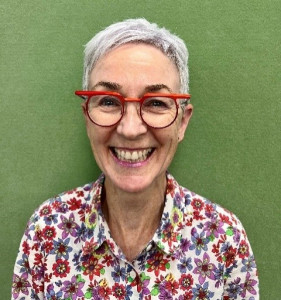 Professor Lynda Johnston FRSNZ FNZGS is a geographer with Te Wānanga o Ngā Kete Division of Arts, Law, Psychology and Social Sciences at the University of Waikato. Her teaching, research and community interests are centred on social and cultural geographies, in particular people’s embodied (gendered, sexualised, raced, disabled) everyday experiences of place. She has been Editor for Gender, Place and Culture: A Feminist Geography Journal, among others. Professor Johnston has extensive governance experience, including as President of the New Zealand Geographical Society. She represents New Zealand on the International Geographical Union, and chaired its Gender and Geography Commission from 2016 to 2020. Professor Johnston served on the Marsden Fund’s Social Sciences panel for Fast Start Grants and on the Society’s Social Sciences panel for James Cook Fellowships. She was elected as a Fellow of the Society in 2023.
Professor Lynda Johnston FRSNZ FNZGS is a geographer with Te Wānanga o Ngā Kete Division of Arts, Law, Psychology and Social Sciences at the University of Waikato. Her teaching, research and community interests are centred on social and cultural geographies, in particular people’s embodied (gendered, sexualised, raced, disabled) everyday experiences of place. She has been Editor for Gender, Place and Culture: A Feminist Geography Journal, among others. Professor Johnston has extensive governance experience, including as President of the New Zealand Geographical Society. She represents New Zealand on the International Geographical Union, and chaired its Gender and Geography Commission from 2016 to 2020. Professor Johnston served on the Marsden Fund’s Social Sciences panel for Fast Start Grants and on the Society’s Social Sciences panel for James Cook Fellowships. She was elected as a Fellow of the Society in 2023.
